 To say that the past few years have been interesting for King Chai would be an understatement. From being oppressed as part of the UKM4 leading to an acquaintance with and submission to His Supreme Eminenceness Lord Bobo, shufflin’ with the LoyarBurokkers and movin’ with UndiMsia! while litigating for the repeal of the UUCA before getting a Man of the Year award, life has certainly changed.
To say that the past few years have been interesting for King Chai would be an understatement. From being oppressed as part of the UKM4 leading to an acquaintance with and submission to His Supreme Eminenceness Lord Bobo, shufflin’ with the LoyarBurokkers and movin’ with UndiMsia! while litigating for the repeal of the UUCA before getting a Man of the Year award, life has certainly changed.
But there’s still nothing he enjoys more than secawan Kopi Kluang. ‘Kopi Kluang’ is his [ir]regular (hoping it will not be so in future) column on the most awesome blawg.
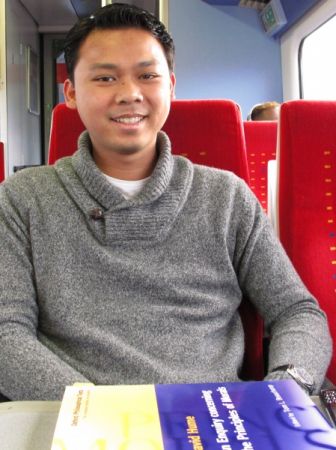
Marcus was right – I should’ve taken more time to write for the (I presume) now-defunct Kopi Kluang ‘Weekly’ Column on LoyarBurok.com. As I was packing my things to leave for Kent to celebrate Christmas with my ‘parents-away-from-home’, it suddenly hit me that one third of my journey here in the United Kingdom to pursue my Master’s degree in Political Theory is over, and I have a little under a year to make the full use of my time here.
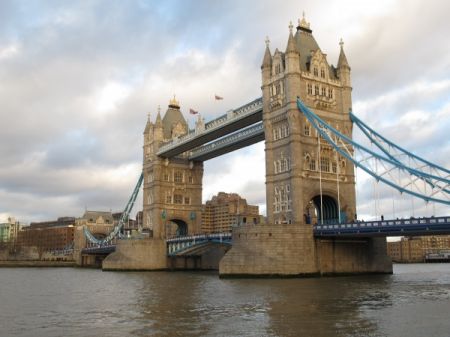
So many places to go, so many things to see, so many books and journal articles to read – will I ever have the time to do it all? Perhaps I will, most likely I won’t. But I think what should be most important is that I record pieces of my journey so far, the lessons that I’ve learned and hopefully it will benefit future aspiring Chevening Scholars, or even anyone who may be thinking of embarking on an academic journey outside of one’s comfort zone.
Having done my undergraduate degree in Political Science at the National University of Malaysia (UKM), I caught myself totally off-guard and unprepared for how difficult the level of higher education here at LSE. Well, of course it should be difficult, or else there wouldn’t be so many people trying to apply for a spot to further their studies here.
Overall, it has been a re-education process for me and every lecture and seminar that I have been to, my lecturer as well as my contemporaries has challenged my worldview and understanding of what I thought was true and ‘self-evident’.
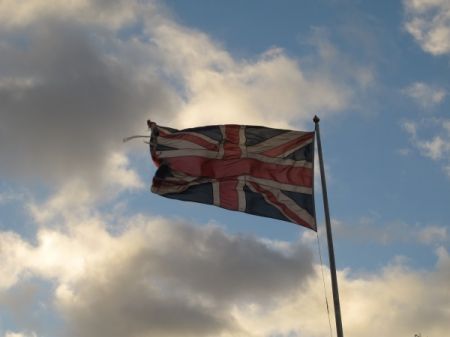
For example, in the recent Michaelmas Term, I took a course on David Hume taught by Professor Dr. Chandran Kukathas, who is a big name in the field of Political Theory/Philosophy. The class was taught in seminar-styled closed group discussion of not more than 15 or 16 students and every week we would examine different aspects of Hume’s philosophy, such as on morality, obligations, passions, etc… However, what made this course extremely difficult for me was that we had to delve into Hume’s own writings by studying the primary sources themselves, such as A Treatise of Human Nature, An Enquiry into the Principles of Morals as well as Hume’s Political Essays.
I swear, academically, it was the hardest thing that I have ever attempted in my life so far. Each week the good Professor would start off my asking general thoughts that we had on the readings that we have done for each week and it serves as a lead-in to more specific questions concerning that particular week’s discussion, for example, “What does Hume meant when he used the analogy of people rowing a boat in the middle of the lake, in relation to obligations and fulfillment of promises?” That’s the kind of thing that would usually melt my brain halfway through the seminar.
So, I made an appointment with the Professor to talk about my difficulties in understanding the week’s readings and asked if there’s anything that I can do to improve myself and to ‘catch-up’ with the rest of my contemporaries? He assured me that it will take time before we can truly grasp Hume’s style of writing and language (there are words like betwixt, guv’nor, odious, etc…) and true enough, after 8 weeks or so, the tiny lightbulb in my head would slowly flicker and turn itself on.
Sure, it sounds wonderful to finally be able to ‘get’ a little bit of what Hume is trying to convey in his writings, but it’s not enough – and there sure isn’t enough time to re-read everything! Regardless, I will continue to hold on to Professor Chandran’s advice to always “keep at it”, especially in anticipation of next term’s courses, where I will be taken courses on “The Liberal Idea of Freedom” and “Multiculturalism, Nationalism and Citizenship”. I’m also hoping to audit a course or two from the Politics & Communications program. If I can manage the time, that is.
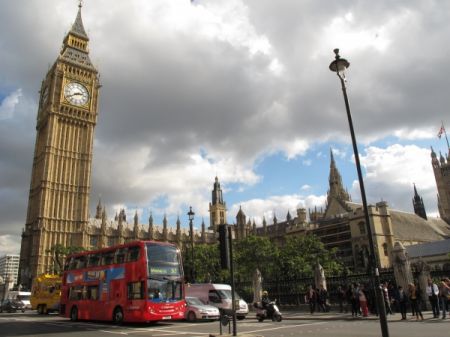
That, ladies and gentlemen, is what the Chevening Scholarship has enabled me to do, which is to expose myself to new paradigms of thinking and understanding by learning from some of the biggest minds in the field. Application for the Chevening Scholarship 2013/2014 has opened for more than a month now and will close on 20 January 2013 (for Malaysian applicants). Therefore, I would like to urge any of you who may be interested to pursue a post-graduate education in the United Kingdom to please, at least, consider applying if you fulfill all the requirements and if you think this scholarship will help you to achieve the goals that you have set for yourself. You can find more information on the official website at Chevening.org.
‘Til next time, folks!
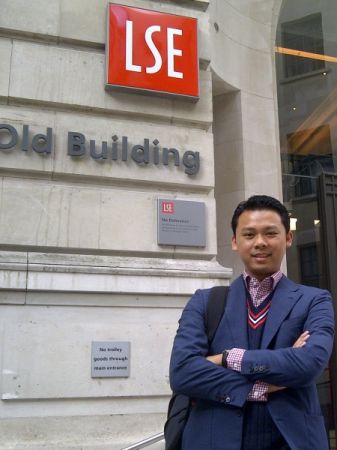
Note: This article was first published on the UK Foreign & Commonwealth Office (FCO) Chevening Conversations blog on 3rd January 2013 and reproduced here on the blawg by the author.

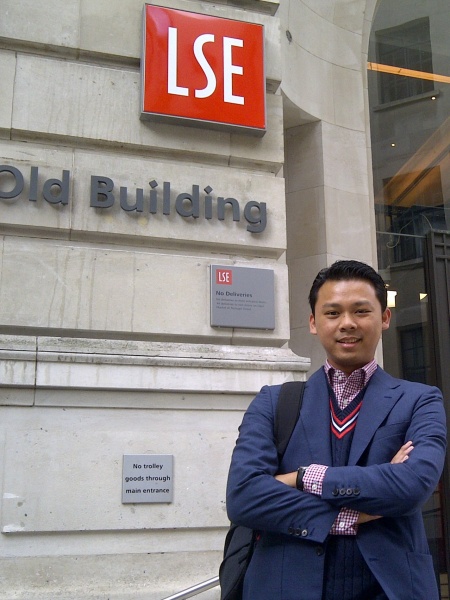
Education is basic thing which students should understand more. The sample high school student resume is all time favorite.
Hi King Chai,
Was just browsing by and came across your article, a great write-up.
Congratulations on your journey in MSc. in Political Theory under the Chevening scholarship at LSE.
OSI/FCO Chevening Scholarships/University of Oxford | Scholarship Programs | Open Society Foundations &ndash ;http://www.soros.org/initiatives/scholarship/focus_areas/uk/oxford
“The OSI/FCO Chevening Scholarships at the University of Oxford 2010-11 are designed to provide opportunities for postgraduate study in selected fields in the United Kingdom for doctoral students, junior lecturers and young professionals who demonstrate both academic excellence and “the potential to become leaders, decision-makers and opinion-formers” in their home countries.” Unquote.
Yes, it is tough initially, until you see the bigger picture…
The Global Political view…
Just to share this…
Hume on Free Will – http://plato.stanford.edu/entries/hume-freewill/
First published Fri Dec 14, 2007
But to proceed in this reconciling project with regard to the question of liberty and necessity; the most contentious question of metaphysics, the most contentious science… —David Hume (EU, 8.23/95)
A THREE THOUSAND YEAR HISTORY – http://www.american-buddha.com/lit.terrorismillum…
“…The Malthusian philosophy originates with Thomas Parson Malthus, who was a professor of political economy with the British East India Company’s East India College at Haileybury. His father was a personal friend of David Hume, and an acquaintance of Jean-Jacques Rousseau…”
A Precise Exegesis on the Available Evidence – http://www.conspiracyarchive.com/NWO/Illuminati.h…
“…As the Eighteenth Century came to a close Baron de Montesquieu (1689-1755), Denis Diderot (1713-1784), Voltaire (1694-1778), Jean-Jacques Rousseau (1712-1778), Marquis de Condorcet (1743-1794), Comte de Mirabeau (1749- 1791), David Hume (1711-1776), Adam Smith (1723-1790), Immanuel Kant (1724-1804), Emanuel Swedenborg (1688-1772) and Johann Wolfgang von Goethe (1749-1832) were famous in their own time.
The instrument of reason became a new faith, no less susceptible to its own breed of dogmatism. The philosophers of the Enlightenment reasoned that the physics of Newton might become applicable in all fields of endeavor: the fundamental cosmic laws of nature could transform society and man himself into a "noble savage." 6…”
You be the judge.
Cheers.